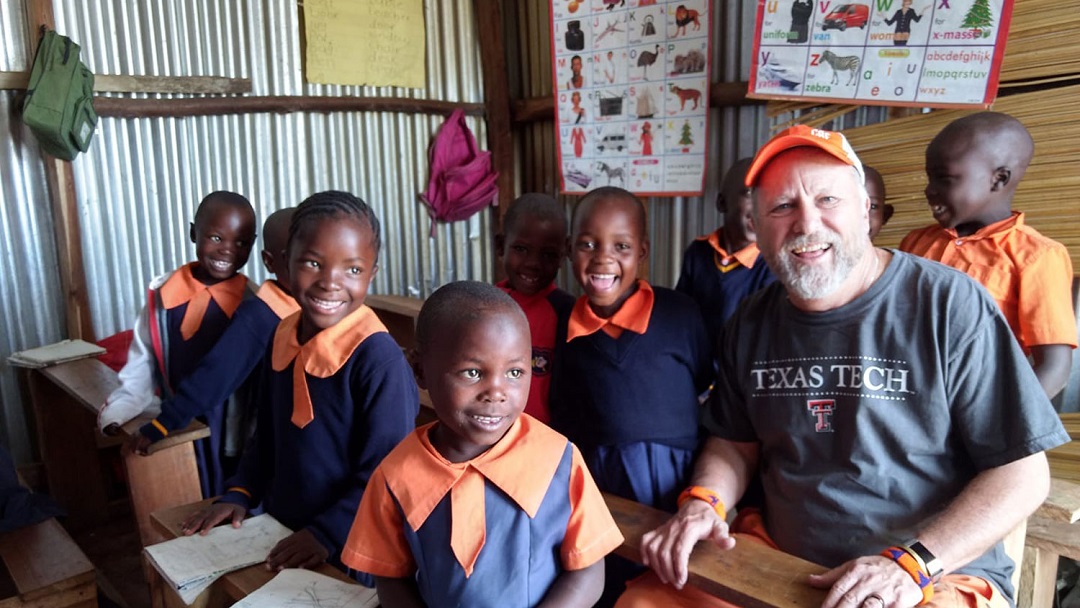
Through their efforts, they have changed the lives of more than 300,000 people.
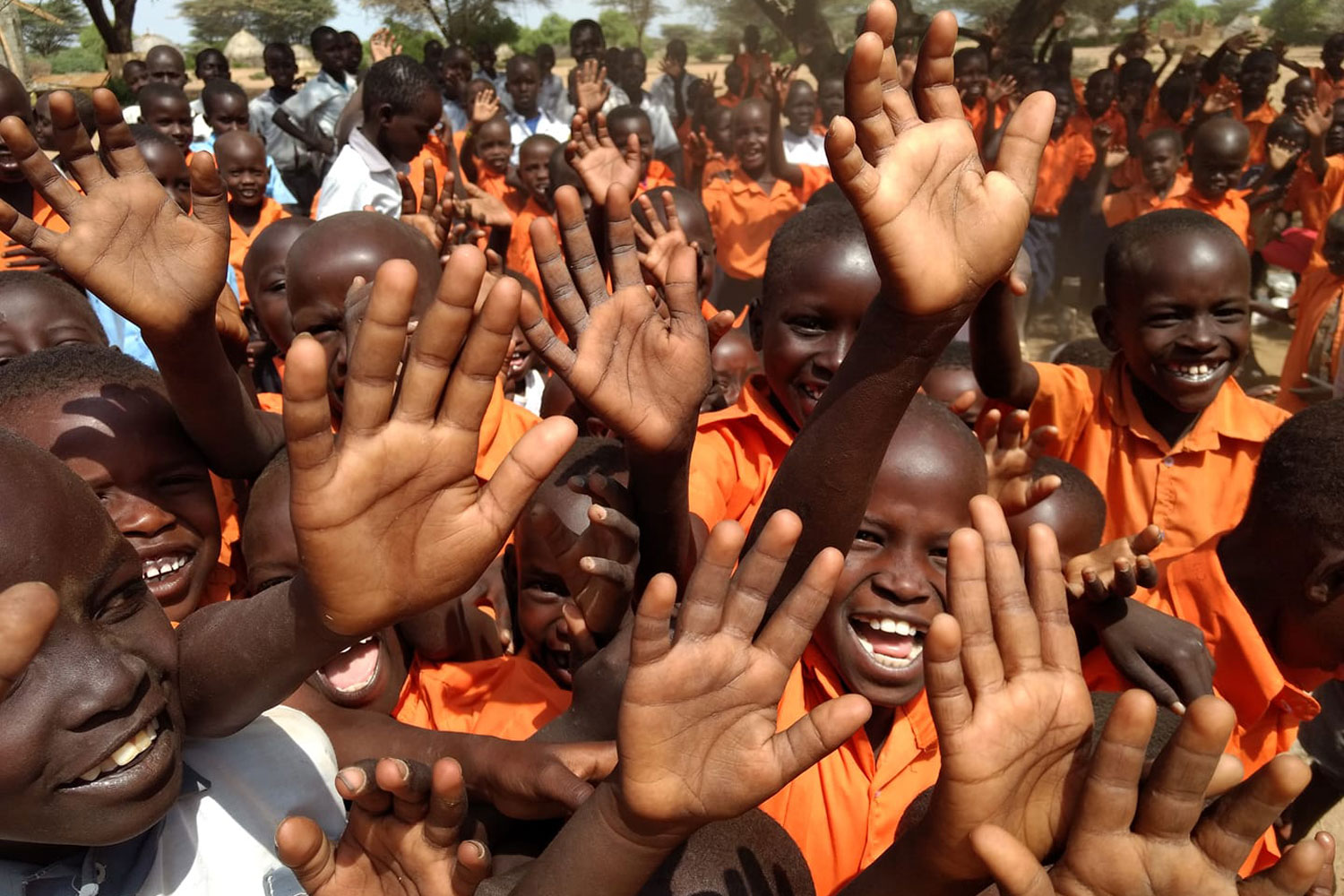
When Milton Jones first went to Africa, he saw little girls carrying buckets of water on their heads and took pictures because he was so impressed.
Now, the sight makes him want to cry.
"The average person has to walk four hours to find polluted water," he explained. "That's an eight-hour round trip carrying polluted water that weighs 40 pounds, on their head. And it's mainly the little girls who are carrying the water, so they don't get to go to school."
Worse yet, drinking that polluted water kills people in droves.
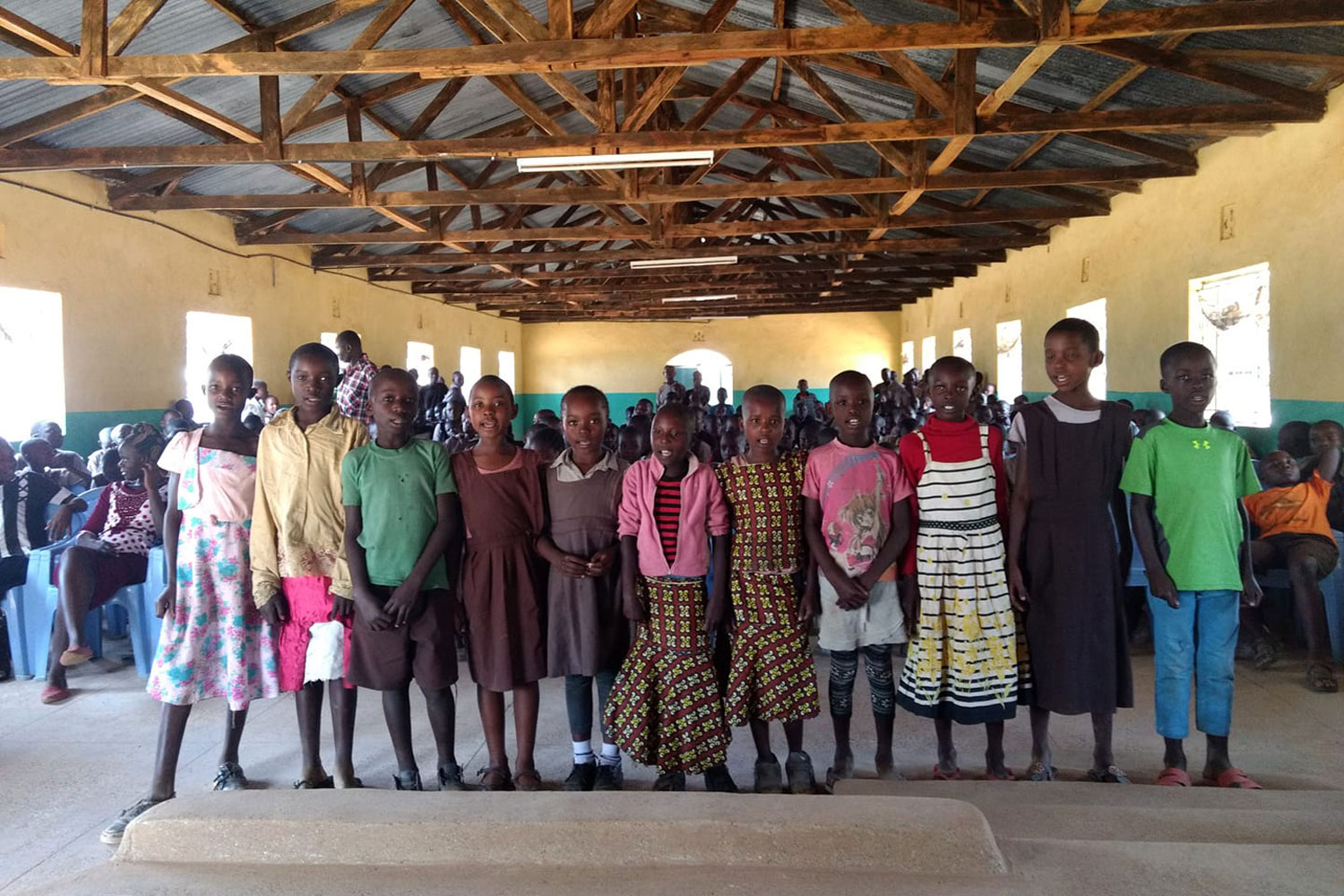
For Jones, president of the Amarillo-based Christian Relief Fund and a Texas Tech University alumnus, there's only one solution to help these children and their families: bring clean water to Africa.
Now, thanks to a serendipitous collaboration with three other Texas Tech alumni, Jones has been able to do just that, changing the lives of hundreds of thousands of people.
Drought
Founded in 1971, Christian Relief Fund is a nonprofit that operates child sponsorships to help orphans and vulnerable children escape the cycle of poverty in developing countries around the world. But in 2013, the Horn of Africa experienced a widespread famine and drought.
"I was really concerned about it, so I was paying people to drill wells in the northern part of Kenya," Jones said. "Most of them were dry holes, but we just kept trying because all these people were dying from a lack of clean water."
In that part of Kenya, called Turkana, there had been no rain in eight years.
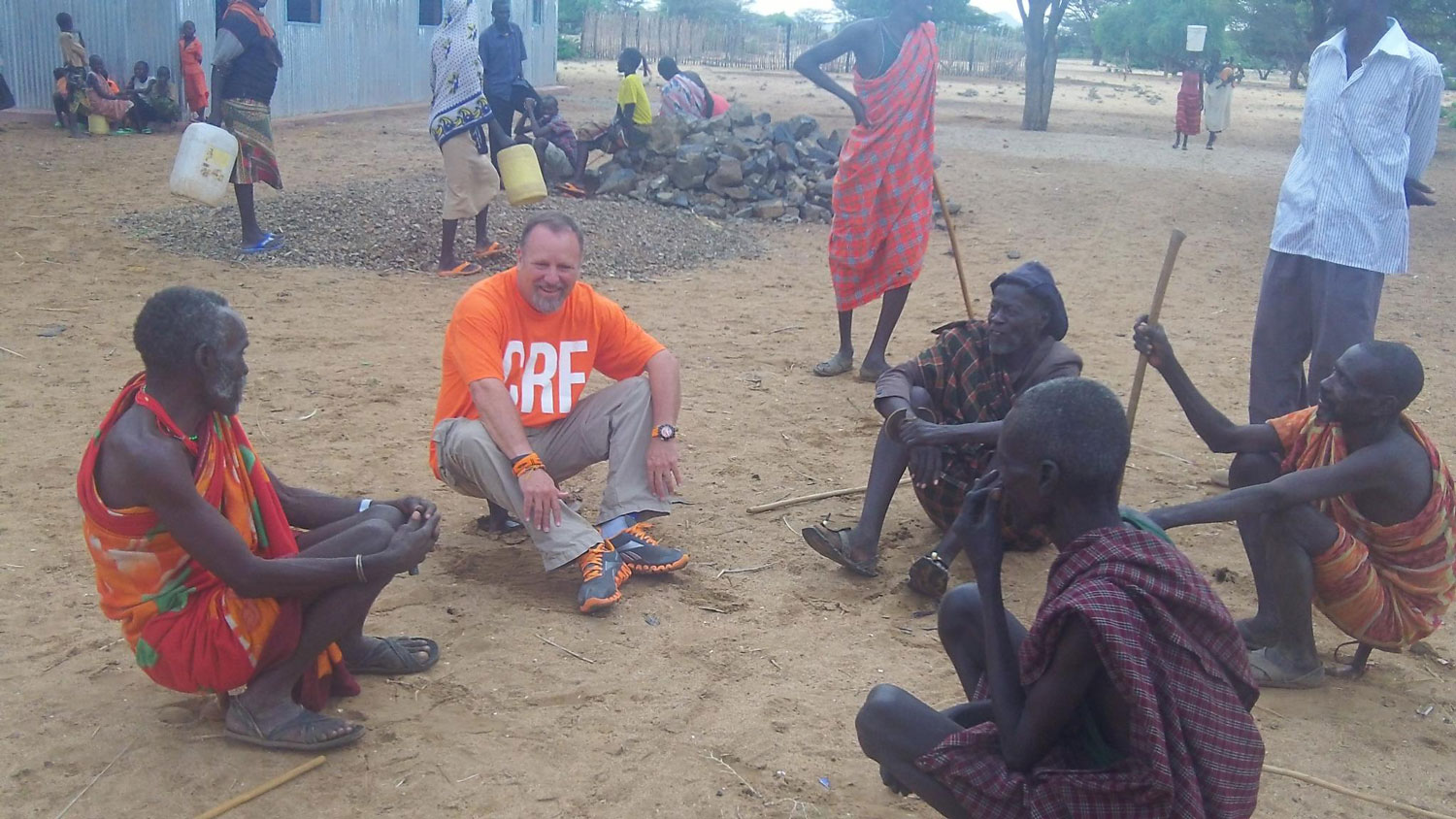
"It's just unbelievably barren," Jones said. "If you go to the outer reaches of it, the desert ground is no longer like sand; it's hardened. To break the ground, it nearly takes a pickaxe in the desert. The rivers don't flow anymore, and you just see these little pockets of water every once in a while – they're green or brown, and they give people cholera and other diseases when they drink it.
"It was killing them to drink that, but they stayed alive longer than if they didn't drink anything at all."
Hope
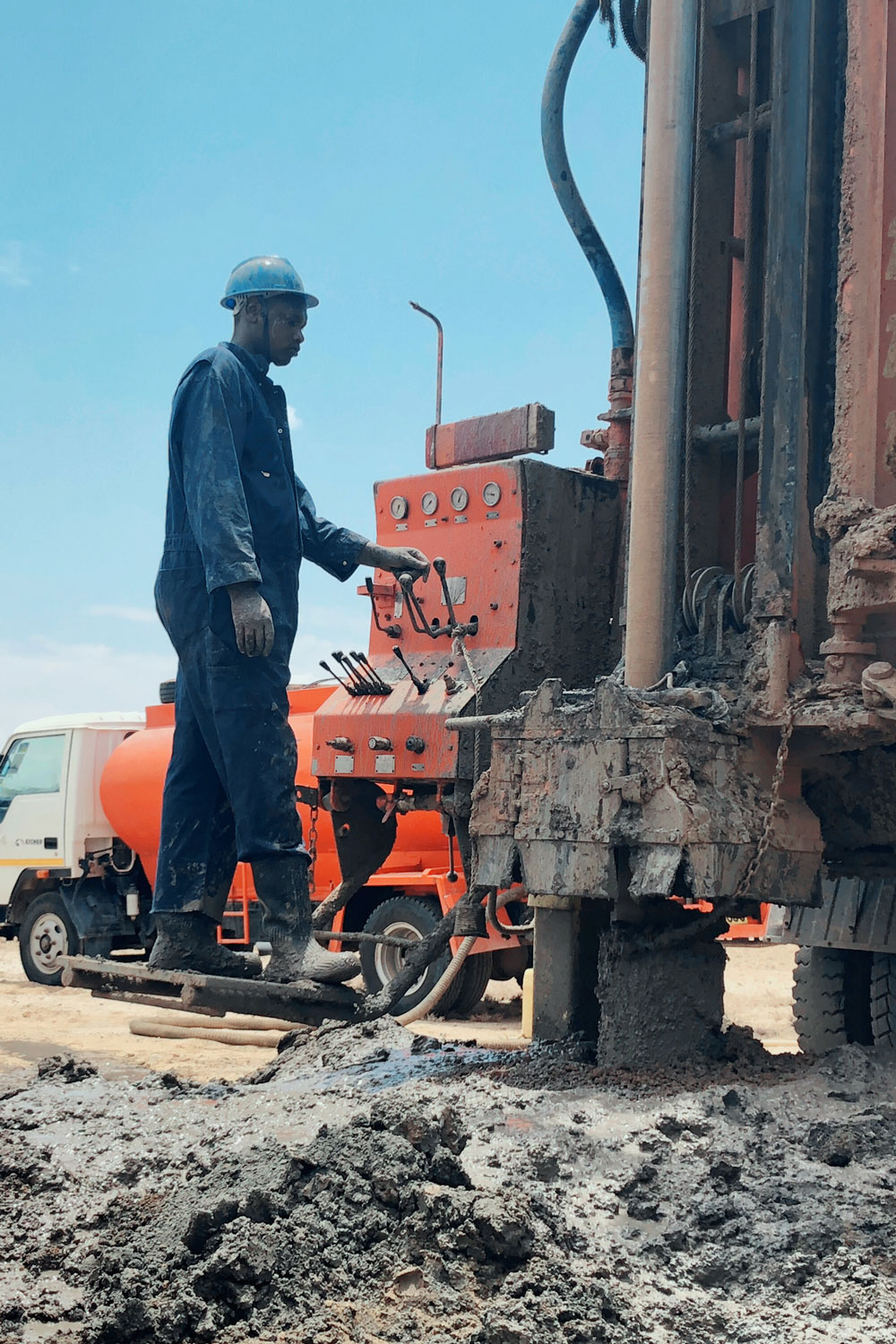
Speaking about the situation at a church in Dallas, he introduced himself as a proud 1974 Texas Tech graduate in finance and a former Saddle Tramp.
After the sermon, a man approached and introduced himself as a 1970 Texas Tech finance graduate. It was Jim Sowell, president of the Jim Sowell Construction Co. Inc. and former chairman of the Board of Regents for the Texas Tech University System.
"He said, 'I like helping people from Texas Tech,'" Jones recalled.
The next day, Sowell called Jones and expressed his concern for the water situation in Kenya.
"Let's do something big," Sowell said. When Jones suggested drilling some water wells – each costing $20,000 – Sowell said, "No, I was thinking bigger. Let's start a drilling company."
"I said, "Well, I'd love to. I've never done it before, but we're Texas Tech guys. We can do it,'" Jones laughed. "So we started a water well-drilling company, and he bought us the best rig we could find."
Collaboration
When they arrived in Turkana with their rig, everyone they met laughed at the idea.
"They said, 'There's no water there, and you're crazy to try,'" Jones recalled. "And we said, 'Well, we've got to try because people are dying.'"
As it turned out, a huge aquifer – one of the biggest in Africa, Jones said – lies directly under Turkana.
"What we discovered is that the reason nobody was hitting water over there is nobody was digging deep enough," he explained. "There was not a rig in that whole area that could go deep enough to hit water."
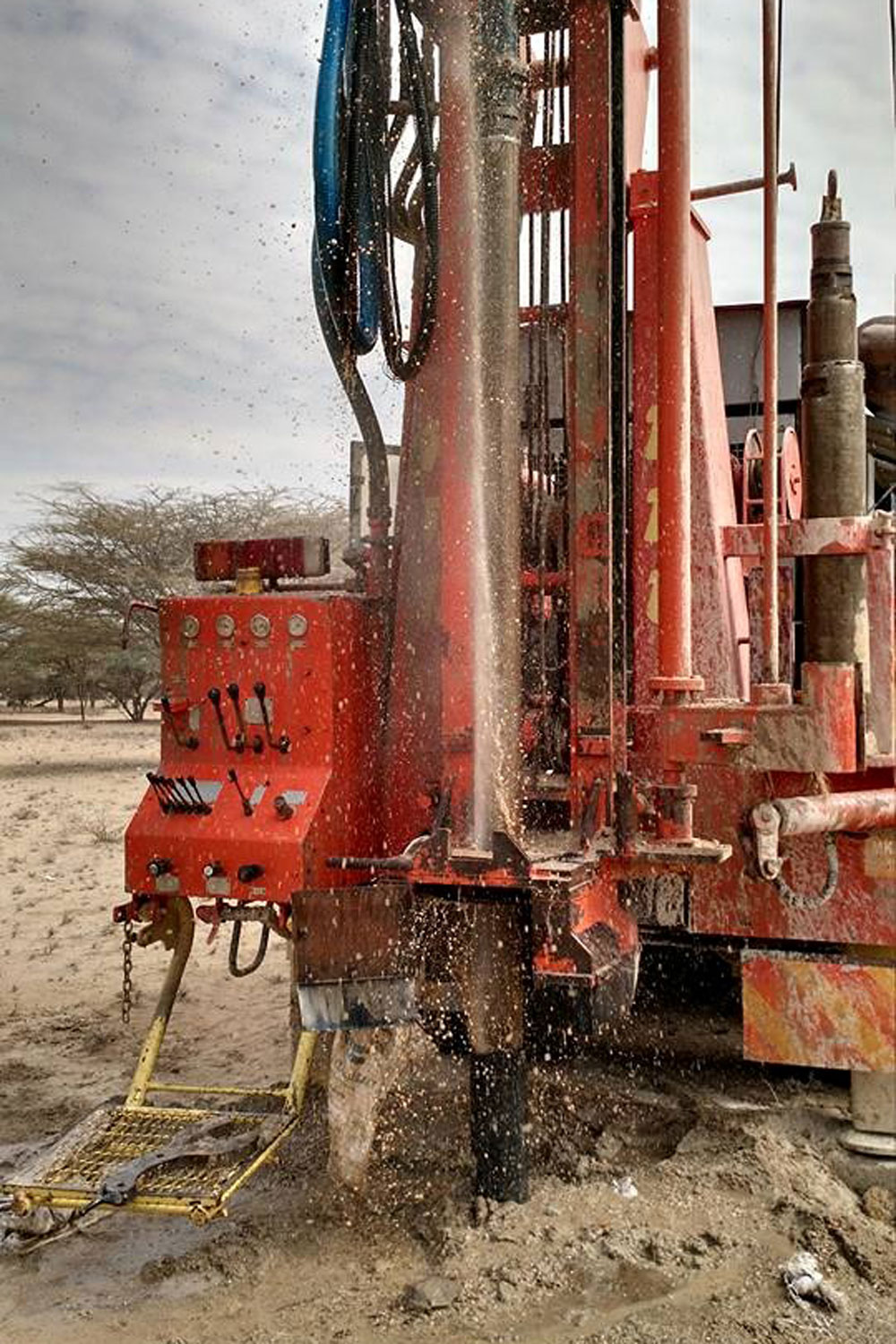
The rig Sowell bought, however, could. In addition, having their own rig meant Jones' Christian Relief Fund crew could drill each well for $10,000, instead of $20,000.
Of course, Jones still had to raise $10,000 for every single well. That's when two other Texas Tech alumni stepped up.
The first was Jimmy Naylor, a 1964 electrical engineering graduate. As one of the pioneers of digital-to-analog converter technology, Naylor had received the Institute of Electrical and Electronics Engineers' Milestone in Electrical Engineering and Computing Contribution Recognition Award for his work on the world's first Monolithic 16-Bit Digital-to-Analog Converter for digital audio in 2011. This advancement enabled the development of affordable compact disc players.
Naylor, already a Christian Relief Fund donor, had met Jones in the past. While driving through Amarillo years ago, Naylor made an unscheduled visit to the nonprofit's office.
"I got a tour and I got a feel for the operation, and it kind of verified my suspicion that they didn't have a lot of overhead like maybe some charities do," Naylor said. "Some organizations spend a lot of money trying to fundraise. From what I have seen, Milton does it himself and, therefore, their expenses are low, so a lot of the dollars that are donated go directly to helping people."
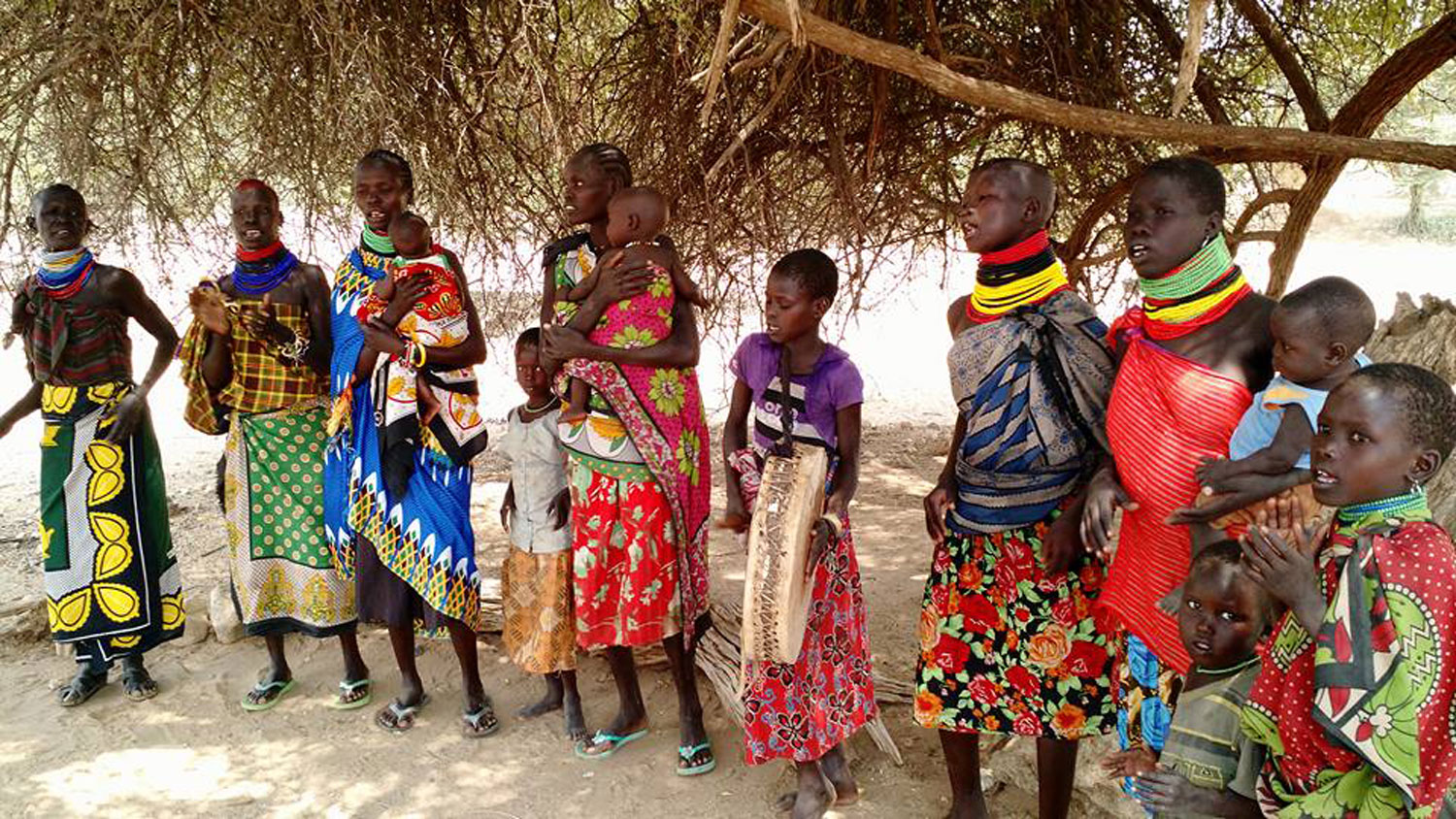
His hunch was right. When funds are donated to drill a well, 100% of those funds are used for that purpose. After learning more about the well-drilling project, Naylor offered to match some of the money donated to Christian Relief Fund, essentially making each donation go twice as far.
Shortly thereafter, Jones met Gary Liggett, a 1964 finance graduate and the former president of Justin Boot Company. The idea of matching funds appealed to him, too.
"I just sat down with him at a restaurant, and I told him the whole water well-drilling story about the famine," Jones said. "And he said, 'Man, this is what I want to do,' and he started matching funds. This was several years ago, and he's been matching funds like crazy. So now, anybody who gives $5,000, he matches it. That means a person can drill a well for $5,000 where just previously it was costing $20,000.
"We've drilled 425 wells now. We provide water to more than 300,000 people every day who wouldn't have had water and who probably would have died."
Water in the desert
When Jones first arrived in Africa, his idea was to go where the people were and drill for water there. He soon realized, though, that the water and people weren't necessarily in the same places. So, with the help of a geologist and satellite technology, Jones' crew locates the water, drills a well there and the people come to them.
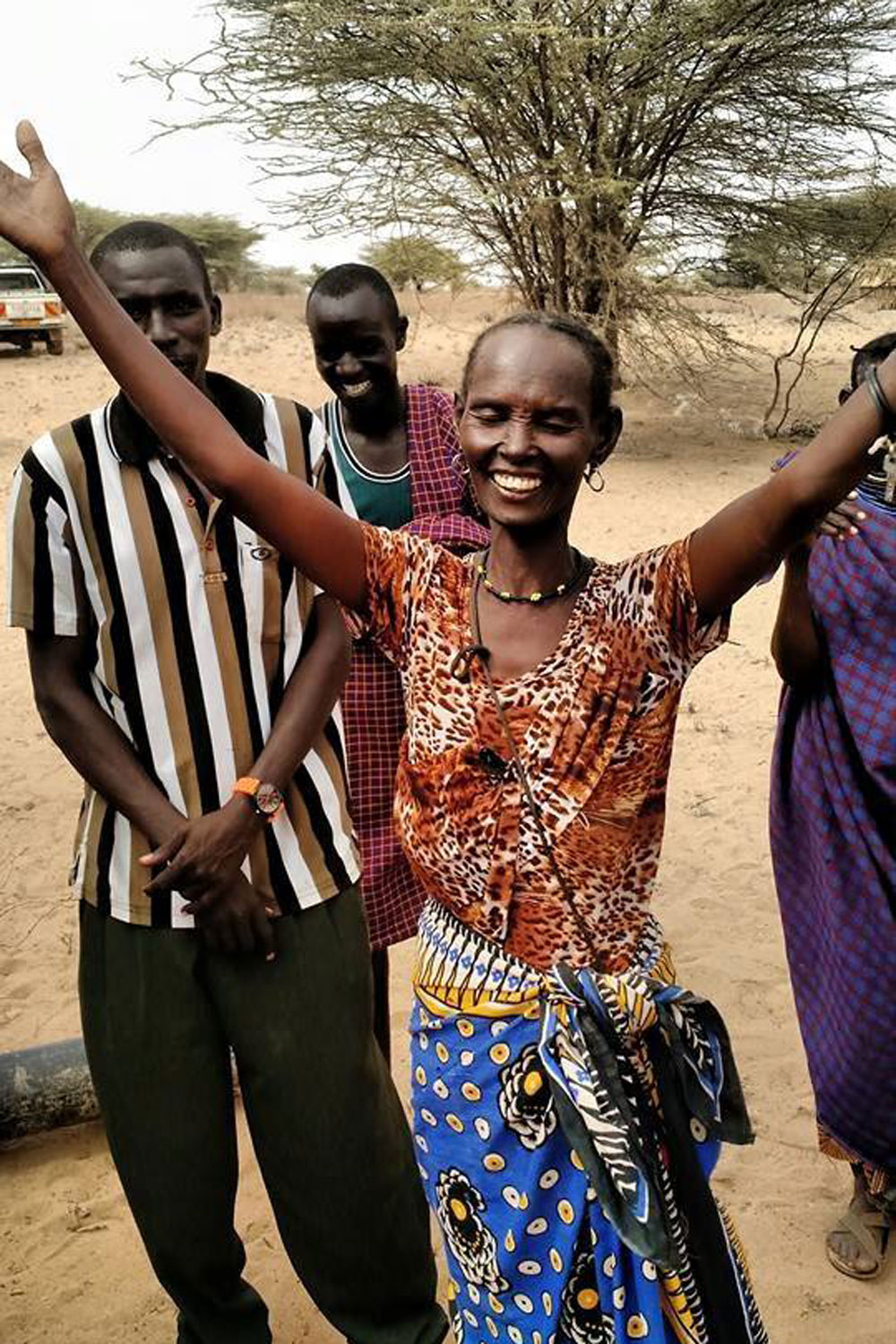
Often, the people arrive out of curiosity before the well is finished. A crowd will gather to see if getting fresh water is even possible – and Jones emphasizes that, through God, all things are possible.
As fresh water begins to flow, Jones reads out Psalms 107:35: "He turned the desert into pools of water and the parched ground into flowing springs."
"The immediate reaction is, they start jumping up and down," Jones said. "Once, they didn't stop jumping up and down for over 30 minutes when they got that clean water – they were just ecstatic."
While he says he doesn't know if every American would drink the water that comes out of the ground, because many are used to treated and filtered water, he and the residents of Turkana are happy to.
"It's very clean – it is just pure water," Jones said. "We don't have to filter it or anything else."
When they drill each well, they furnish the pump to get water out of it.
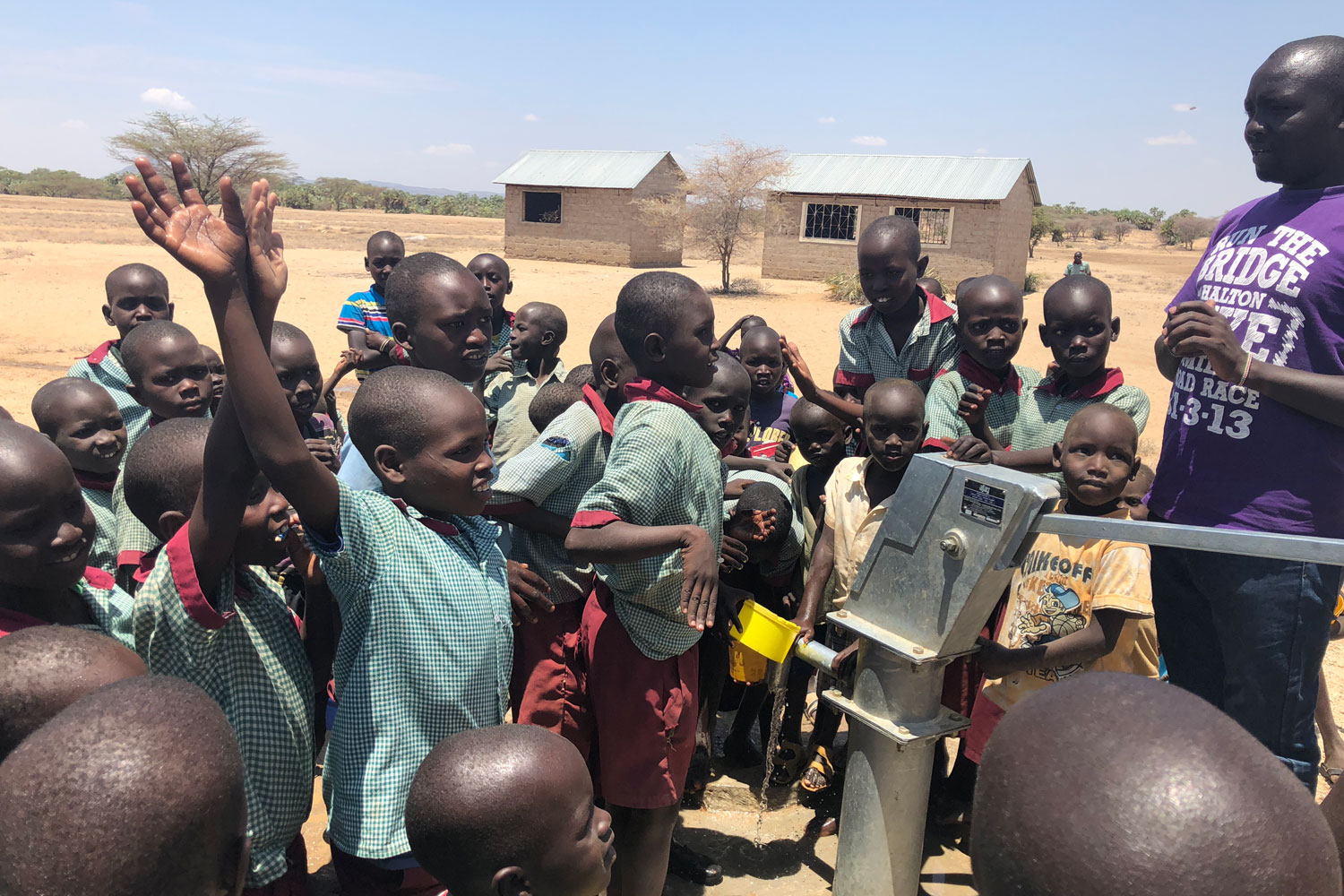
"We put hand pumps if it's not too deep. If it's really deep, we'll use solar pumps – they don't have electricity, but they've got plenty of sun," he explained. "We estimate the pump will last at least 10 years, but we're expecting the wells to last decades.
"So what we've done has kind of changed their whole society a bit."
Changing lives
What they've found is, people follow the water. So by drilling a well, Jones' crew is, in effect, starting a new community.
As the people arrive in each new community, Jones and his volunteers start schools to teach the children, who no longer have to walk for hours to fetch water. They teach the adults about sanitation and how to use water well.
"Once you get the water, you can plant a farm there – you've got irrigation," he said. "And then once you have a community, then you can start schools and churches, and get a little economy going there."
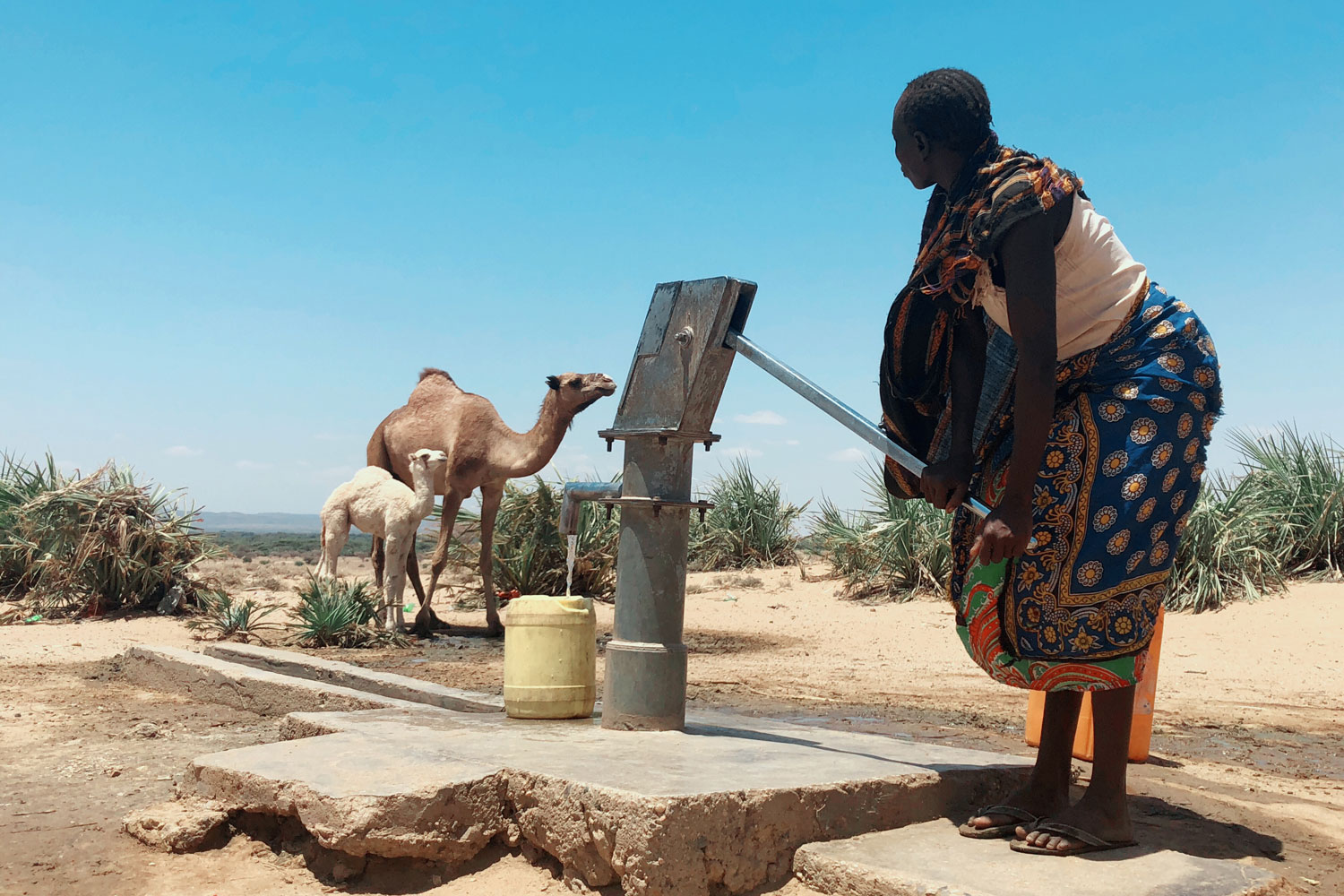
At the base of each water pump, they build a trough so animals can drink, too.
"They're really big in raising goats here," Jones said. "So we also furnish goats to the communities because they breed really quickly and, of course, they can use goat milk for nourishment. Once they breed enough, they can start eating goats."
"Really blessed"
Jones finds it interesting that things have worked out the way they have – and definitely true to the saying that God works in mysterious ways.
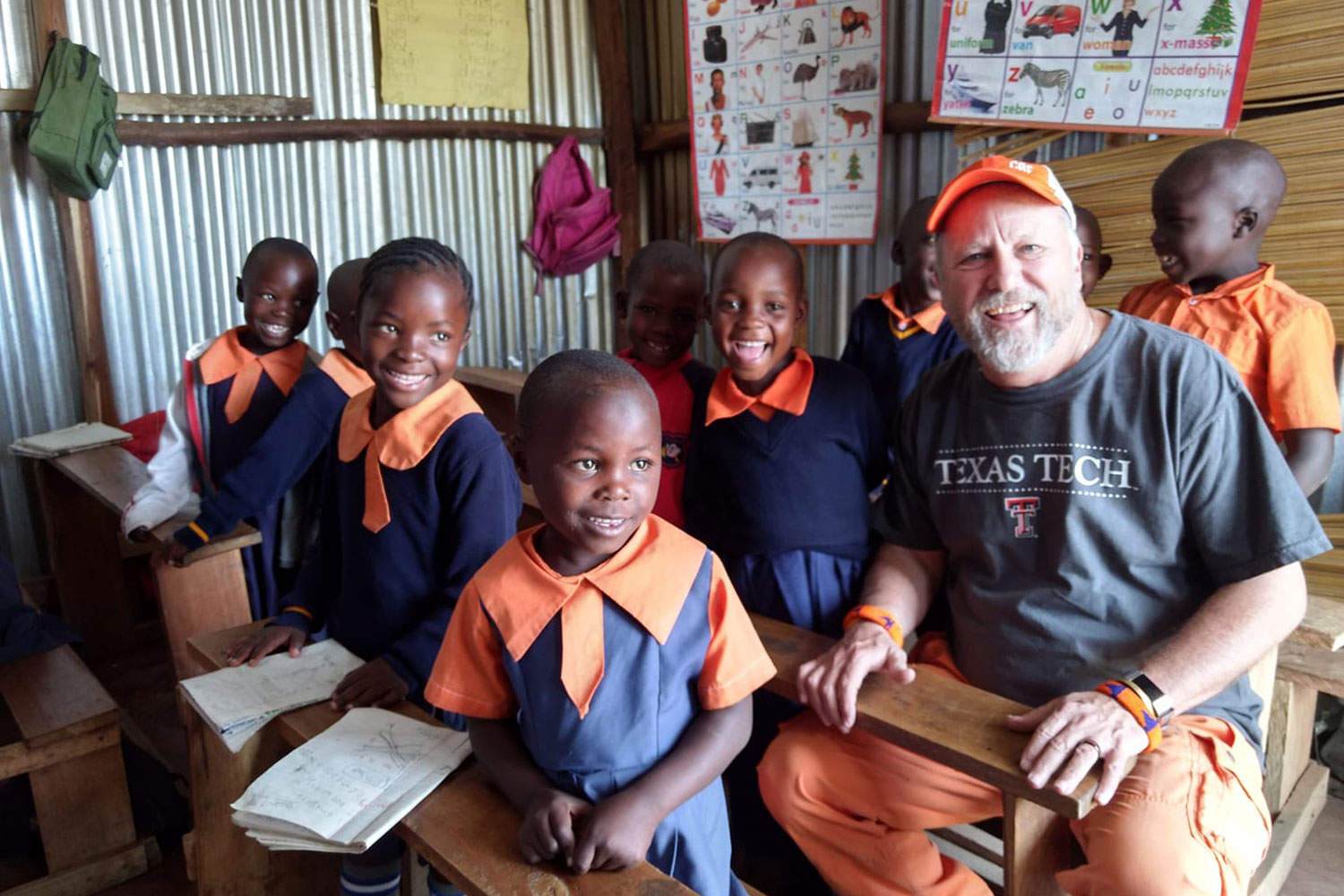
"It's just several Texas Tech people who ended up collaborating and who really had no other connection," he said. "They all just kind of knew about Christian Relief Fund, wanted to help and had a heart to help these dying people – and they all root back at Texas Tech.
"With Jim Sowell purchasing the rig, and Jimmy Naylor and then Gary Liggett financing so much of it, it's been great to have all these Texas Tech people together – it's kind of a Texas Tech deal. It's a Christian Relief Fund deal one way, but so many of the key players all had roots in Texas Tech, which is kind of neat."
He attributes the collaboration to two things: the kinds of people who choose to attend Texas Tech, and the kinds of people who emerge, changed, at graduation.
"I don't think we were all together at Texas Tech planning some big way to help the world," he laughed. "I think it's all because of the things we became and the people we became because of Texas Tech.
"We've been really blessed."
Learn more about Christian Relief Fund's water work here.
This story was provided by Glenys Young, media relations specialist for the Texas Tech University Office of Communications and Marketing.
